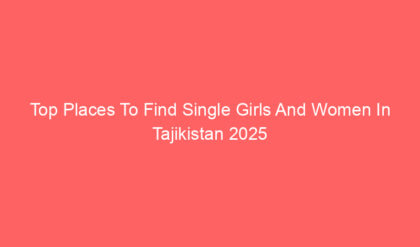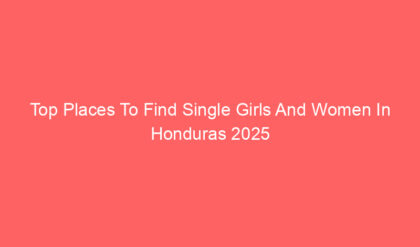Introduction
Gambling is one of the oldest and most widespread forms of entertainment across the world. From ancient dice games to modern online casinos, the nature of gambling has evolved. However, the legality of gambling varies widely from country to country. Some nations allow it fully under strict regulation, while others ban it completely due to religious, moral, or economic reasons. This article provides a comprehensive and detailed overview of gambling laws in every country as of 2025.
What Is Considered Gambling?
Before diving into the list, it’s important to understand what “gambling” includes. Gambling typically involves betting money or valuables on an event with an uncertain outcome. It includes:
- Casino games (roulette, poker, slots)
- Sports betting
- Lotteries
- Horse or greyhound racing
- Online gambling
- Betting exchanges
- Fantasy sports (in some jurisdictions)

Categories of Gambling Laws
For simplicity, countries have been grouped into three major categories:
- Legal/Regulated: Gambling is allowed and regulated by the government.
- Illegal: Gambling is banned; enforcement can be strict or loose.
- Partially Legal / Grey Area: Only certain forms are allowed, or enforcement is inconsistent.
AFRICA
Many African nations allow gambling, especially land-based casinos and sports betting. Online gambling is growing but remains mostly unregulated.
Countries where gambling is legal and regulated:
- South Africa – Highly regulated with legal land-based casinos and online betting through licensed operators.
- Nigeria – Legal and thriving sports betting market.
- Kenya – Legal but heavily taxed.
- Ghana, Uganda, Tanzania, Rwanda – Legal, mostly sports betting.
- Zambia, Zimbabwe, Namibia, Malawi, Mauritius – Gambling allowed under state regulation.
- Botswana – Fully licensed industry.
Countries where gambling is mostly illegal or banned:
- Somalia, Mauritania, Sudan – Gambling banned due to Islamic law.
Countries with unclear laws / grey areas:
- Mali, Chad, DR Congo – Laws are unclear; not actively enforced.

MIDDLE EAST & NORTH AFRICA
This region has the strictest anti-gambling laws, mostly based on Islamic Sharia law.
Countries where gambling is illegal:
- Saudi Arabia – Total ban; even online gambling is harshly punished.
- Iran, Iraq, Afghanistan – Gambling is a criminal offence.
- Kuwait, Qatar, Oman, UAE – All forms banned; some allow only government lotteries.
- Yemen, Libya, Algeria – Total prohibition.
Exceptions:
- Egypt – Land-based casinos allowed for tourists. Citizens cannot gamble. Lotteries are legal.
- Lebanon – Limited gambling allowed under Casino du Liban.

EUROPE
Europe is the most open region for gambling, with most countries legalizing and regulating both land-based and online gambling.
Countries with legal and regulated gambling:
- United Kingdom – Very mature and transparent gambling system.
- France, Germany, Italy, Spain, Netherlands, Ireland, Portugal – Regulated gambling industries with both online and land-based options.
- Sweden, Finland, Denmark, Norway – Mostly legal; Norway has state monopoly.
- Malta – A hub for online gambling licenses.
- Poland, Czech Republic, Romania, Bulgaria, Slovakia – Legal under government regulation.
- Switzerland – Gambling legal but only through licensed providers.
Countries with mixed laws or partial legalization:
- Russia – Land-based gambling legal only in specific zones. Online gambling is restricted.
- Belarus – Online and land-based are legal but tightly controlled.
- Bosnia and Herzegovina – Some regions allow online betting.
Countries with bans or restrictions:
- Vatican City, Andorra – No legal gambling.

NORTH AMERICA
North America has a complex gambling structure with different rules for each country and, in some cases, individual states or provinces.
United States
- Gambling is legal at the federal level but controlled by individual states.
- Nevada, New Jersey, Pennsylvania, Michigan, and many others allow casinos and online betting.
- Utah and Hawaii have total bans.
- Online gambling is legal in more than 30 states, but laws vary.
Canada
- Gambling is legal and regulated by provinces.
- Online gambling is allowed in places like Ontario, which has a full online gambling market.
Mexico
- Land-based gambling is legal and regulated.
- Online gambling exists in a legal grey area but is widely available.

LATIN AMERICA
Many Latin American countries are reforming gambling laws to allow more regulated markets.
Countries legalizing or reforming gambling:
- Brazil – Sports betting legalized; casinos still not allowed, but changes are underway.
- Argentina – Legal under provincial control; online gambling is regulated in places like Buenos Aires.
- Colombia – One of the most advanced legal online gambling markets in the region.
- Peru – Recently legalized online gambling with tax reforms.
- Paraguay, Uruguay – Legal but not yet fully regulated.
Countries with bans or limited regulation:
- Bolivia, Venezuela, Ecuador – Gambling legal but poorly regulated.
ASIA
Asia is very diverse in terms of gambling laws, with some countries fully banning it and others heavily promoting it.
Countries where gambling is legal and regulated:
- Macau (China) – The largest legal gambling hub in Asia.
- Japan – Legalized casinos as part of integrated resorts; lotteries and horse racing allowed.
- Singapore – Two land-based casinos; strict entry laws for locals.
- South Korea – Casinos only for foreigners; state-run lotteries allowed.
- Philippines – Full legal framework with PAGCOR regulation.
Countries where gambling is banned or very restricted:
- China (mainland) – Illegal except for state lotteries.
- North Korea – Illegal.
- Indonesia, Brunei, Pakistan, Bangladesh – Banned due to Islamic law.
Countries with partial legalization:
- India – State-level control. Goa, Sikkim, Daman have legal casinos. Online gambling remains a grey area.
- Vietnam – Gambling allowed in select casinos for foreigners; pilot program for locals.
- Thailand – Gambling mostly banned, but reforms in process to legalize tourist casinos.
- Malaysia – Only one legal casino (Genting Highlands); online gambling illegal but widespread.
OCEANIA
Oceania has some of the highest gambling rates in the world.
Australia
- Gambling is legal and widely practiced.
- Land-based casinos, pokies (slot machines), and horse racing are all regulated.
- Online gambling is restricted – foreign operators are blocked, and locals can only use licensed platforms.
New Zealand
- Government-run Lotto and TAB are legal.
- Casinos are licensed.
- Online gambling through foreign sites is not illegal for users, but local companies can’t offer unlicensed services.
SUMMARY TABLE
| Region | Legal & Regulated | Illegal or Banned | Partially Legal / Mixed |
|---|---|---|---|
| Africa | South Africa, Nigeria, Kenya | Somalia, Mauritania | Mali, Chad |
| Middle East | Egypt (tourist casinos) | Saudi Arabia, Iran, Qatar, Kuwait, UAE, etc. | Lebanon |
| Europe | UK, France, Germany, Italy, Malta | Vatican City, Andorra | Belarus, Russia, Bosnia |
| North America | US (by state), Canada, Mexico | Utah, Hawaii (US states) | Online laws vary widely |
| Latin America | Brazil, Argentina, Colombia, Peru | Limited in Bolivia, Venezuela | Paraguay, Uruguay |
| Asia | Japan, Macau, Singapore, Philippines | China, N. Korea, Indonesia, Pakistan, Brunei | India, Thailand, Vietnam, Malaysia |
| Oceania | Australia, New Zealand | None fully banned | Online gambling restricted |
Final Words
Gambling laws are complex and always changing. In 2025, over 130 countries have some form of legal gambling. However, more than 50 countries either ban it completely or allow only state-controlled lotteries. The global trend is moving towards regulated legalization, especially for online gambling, as governments see it as a source of tax revenue and tourism.
If you’re planning to gamble in another country or start a gambling-related business, always consult the official legal sources or local gaming authorities. Many countries are actively updating their laws, and violating them can result in serious penalties.
Disclaimer: This article is for informational purposes only. Always verify the latest laws with a legal advisor or government authority before participating in gambling activities.





